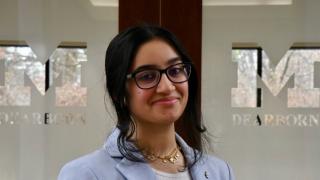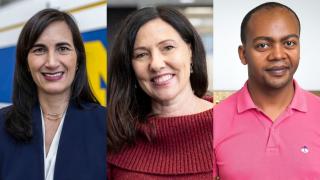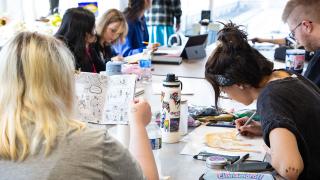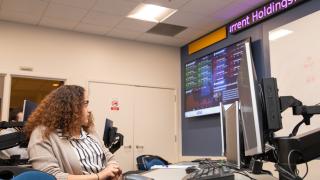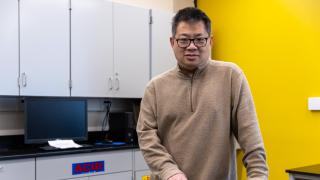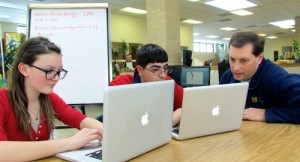
And keep an eye on the BlackBerry stock, which is up more than five points this week.
The stock chatter isn’t coming from a Wall Street trading room. It stems from a classroom at Dearborn Heights Montessori Center, where students are keeping a close eye on the markets.
Lee Freeman visits the school for a couple hours every Wednesday to teach seventh- and eighth-graders about the stock market, and how they can assess financial risk and better understand investment strategy.
“The kids love it because it’s something that’s so new to them,” said Freeman, an associate professor of management information systems at University of Michigan-Dearborn. “They know these things called ‘stocks’ exist, but they don’t know how to get one or why the prices change.”
The class is an elective, and school administrators encourage students’ parents to use their expertise by teaching courses. Some parents teach web design, while others focus on cooking and sewing, said teacher Kim Davidson.
“It is a tremendous gift to our program,” said Head of Schools Kay Neff. “When you’re the age of these kids, your whole life is before you and you’re making a lot of decisions about what you might be interested in. This is an age of exploration for them.”
Enter Michael Nunu. The eighth-grader long aspired to be a doctor, but after taking Freeman’s stock market class, he’s broadened his career outlook.
“Looking at all of these choices and learning about the stock market, I think I can make a better decision on what I want to be when I grow up,” he said.
And it doesn’t hurt that Nunu turned a profit, albeit a fake one.
Students purchased and sold stocks using a free stock market simulation program, in which they were initially provided $100,000 of fake money. They regularly monitored the market to determine which stocks to hold on to and which ones to sell.
Like Nunu, eighth-grader Emily Jason also turned a profit.
“It kind of changed my perspective on the way that money works,” she said.
That was the idea when Freeman initially volunteered to teach the class last year.
“So much of the economy revolves around the stock market, and you can’t avoid that,” Freeman said. “This is going to be something that’s part of your life. They may not be investing in the stock market when they’re 15 or 16, but they’re probably going to be earning some type of income, so they have to decide what to do with it.”

